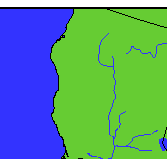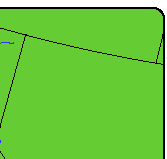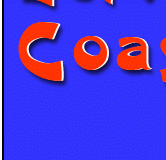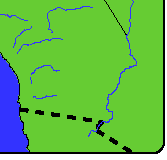Qaddafi
has been a useful devil for over quarter of a century, reaching
an apogee as a "threat" in the Reagan years when
the CIA invented a Libyan assassination team, supposedly
headed south from Canada to attack the White House, which
was speedily fortified by concrete barricades that remained
in place for many years thereafter. The US struck back by
bombing Qaddafi’s compound. The White House had prepared
a news release regretting the "accidental" death
of the Libyan leader, but found to its chagrin that Qaddafi
had survived the raid, which did manage to claim the life
of his daughter.
Then
came the downing of PanAm Flight 103 over Lockerbie in December,
1988 with the deaths of 270 people, followed by a determined
bid by US security agencies such as the CIA and FBI to pin
the blame on Qaddafi. In fact there’s plenty of evidence
to suggest that Iran instigated the sabotage of PanAm Flight
103 in revenge for the shooting down of its civilian airbus
over the Persian Gulf by the US missile carrier Vincennes,
whose officers were subsequently decorated for their heroism
in blowing away the civilian plane and 290 passengers. But
the US had scant way of punishing Iran, and so Libya once
again was mustered to fulfill its Satanic role as the convenient
receptacle for US outrage.
The
case against Libya and specifically the two Libyans, Abdelbasset
al Megrahi and Al Amin Fhimah, was always frail in the extreme,
which is no doubt why Qaddafi finally agreed to send the
two for trial by Scotch judges in a courtroom in Holland.
The actual trial left most dispassionate observers all the
more convinced that the three judges would have no option
but than to find the prosecution’s case non-proven. But
then came a huge public relations victory from the US and
its ever compliant satellite, the UK. The three Scotch judges
declared that Megrahi was indeed guilty of planting the
bomb, and sentenced him to 20 years, a verdict he is now
appealing. They found Fhimah innocent.
Now,
in the first criticism of the verdict in the trial of two
Libyans, Hans Koechler, a distinguished Austrian philosopher
appointed as one of five international observers at the
trial at Zeist, in Holland by Secretary General Kofi Annan
to observe the trial, has issued a well merited denunciation
of the Judges’ bizarre conclusion. "In my opinion,"
Koechler writes, "there seemed to be considerable political
influence on the judges and the verdict."
Koechler’s
analysis of the proceedings is by no means an exercise in
legal esoterica. Basically, he points out that the judges
found Megrahi guilty even though they themselves admitted
that his identification by a Maltese shop owner (summoned
by the prosecution to testify that Megrahi bought clothes
later deemed to have been packed in the lethal suitcase-bomb)
was "not absolute" and that there was a "mass
of conflicting evidence."
Furthermore,
Koechler queries the active involvement of senior US Justice
Department officials as part of the Scottish prosecution
team "in a supervisory role." No one should have
needed an Austrian philosopher to point out that the verdict
was a travesty. So feeble was the prosecution case that,
last September, Scotland’s most prominent legal expert,
Professor Robert Black of Edinburgh University, predicted
that the judges would have little option other than a unanimous
"not guilty". Such expectations in the integrity
of Scottish justice, were similarly nourished by many others,
including Nelson Mandela, many of the victims’ relatives,
the defendants themselves and all those who had previously
resisted efforts to drag the accused in front of a US Federal
Court or some similar Star Chamber.
Assuming
a requisite degree of judicial impartiality, the prosecution
case absolutely depended on proving beyond a reasonable
doubt that Megrahi was the man who bought the clothes, traced
by police to a Maltese clothes shop, and later packed in
with the bomb. In 19 separate statements to police prior
to the trial the shopkeeper, Tony Gauci, had failed to make
a positive identification. In the witness box, Gauci was
asked five times if he recognized anyone in the courtroom.
No answer. Finally, the exasperated prosecutor pointed to
the dock and asked if the man sitting on the left was the
customer in question. Even so, the best that Gauci could
do was to mumble that "he resembled him."
Gauci had also told the police that the man who bought the
clothes was six feet tall and over 50 years of age. The
evidence at the trial established that Megrahi is 5 feet
8 inches tall and that in late 1988 he was 36 years of age.
The clothes had been bought either on November 23 or December
7, 1988. Megrahi had been in Malta on December 7 but not
on the November date. The shopkeeper recalled that the man
who bought the clothes had also bought an umbrella because
it was raining heavily outside. Maltese meteorological records
introduced by the defense showed clearly that while it did
rain all day on November 23, there was almost certainly
no rain on December 7. If it did rain on that date, the
shower would have been barely enough to wet the pavement.
Nevertheless, the judges held it proven that Megrahi had
bought the clothes on December 7.









